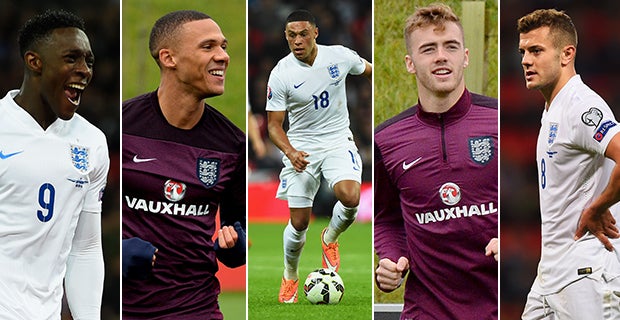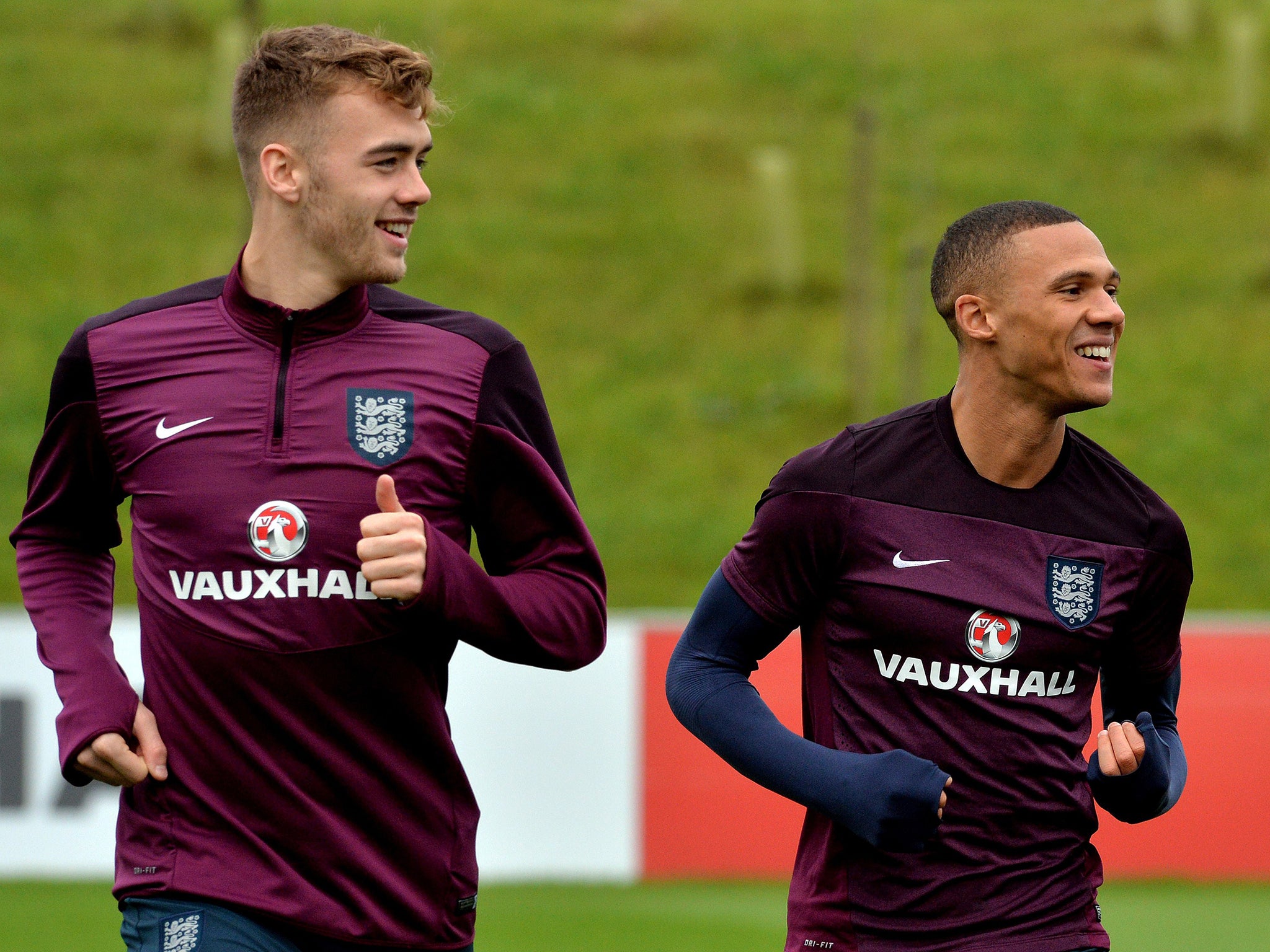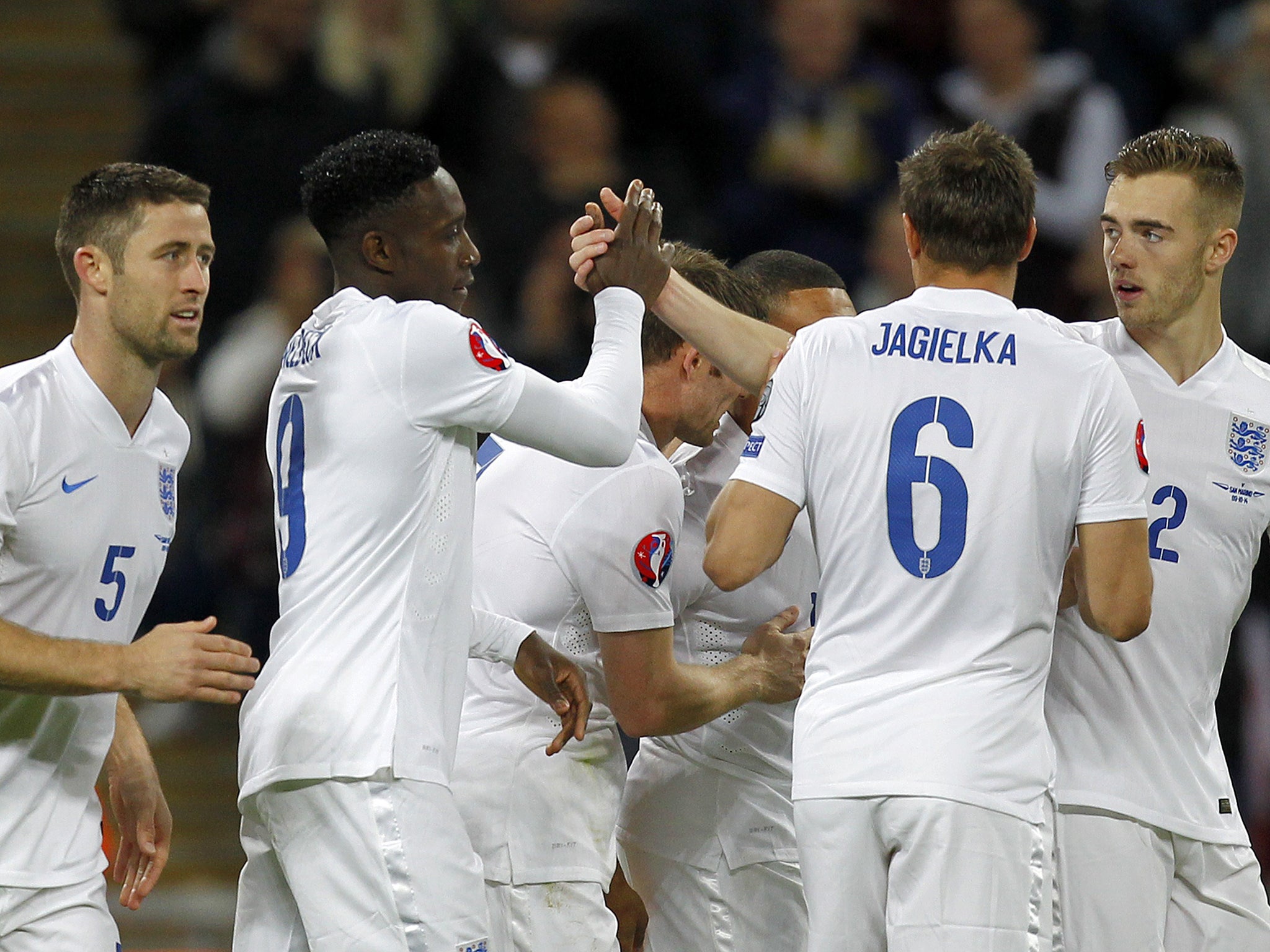Estonia vs England: Five Arsenal players show England the advantage of a one-club bias
Kieran Gibbs, Calum Chambers, Jack Wilshere, Alex Oxlade-Chamberlain and Danny Welbeck played a role against San Marino

Your support helps us to tell the story
From reproductive rights to climate change to Big Tech, The Independent is on the ground when the story is developing. Whether it's investigating the financials of Elon Musk's pro-Trump PAC or producing our latest documentary, 'The A Word', which shines a light on the American women fighting for reproductive rights, we know how important it is to parse out the facts from the messaging.
At such a critical moment in US history, we need reporters on the ground. Your donation allows us to keep sending journalists to speak to both sides of the story.
The Independent is trusted by Americans across the entire political spectrum. And unlike many other quality news outlets, we choose not to lock Americans out of our reporting and analysis with paywalls. We believe quality journalism should be available to everyone, paid for by those who can afford it.
Your support makes all the difference.There was a red tinge to England’s success on Thursday night, and it suggested an optimistic future. While nothing too much can be read into the 5-0 defeat of opposition as poor as San Marino, there were still positive signs for Roy Hodgson’s side.
For the first 20 minutes of the second half at Wembley, when the team played its best football, there were five Arsenal players on the pitch: Kieran Gibbs, Calum Chambers, Jack Wilshere, Alex Oxlade-Chamberlain and Danny Welbeck. The last time there were so many Arsenal players in one England team was 1936.
Of course, five Arsenal players were not on the pitch because they are inherently superior, but the same bonds of trust, understanding and communication on which football teams are based can be used by both Hodgson and Arsène Wenger.
The biggest challenge in international football is to teach a group of players how to combine and move like a good club team, but with far less coaching time to do it. This is why the last two great international sides – Germany’s current world champions and the all-conquering Spain side before them – were built on foundations from one club team.

By taking so many of the players – and the ethos – from Barcelona, Spain had a club model in place, short-circuiting the demands traditionally placed on international coaches in their brief contact time with players. The same, more or less, was true with Germany, who have built on the reliable spine of Bayern Munich.
This Arsenal side are some way away from the level of Barcelona or Bayern Munich, as their recent meetings in the Champions League have shown. But there is a still the potential benefit here of talented youngsters working together every week at the London Colney training ground, playing at the Emirates, and then taking those lessons with them to the national team.
Oxlade-Chamberlain certainly hopes so. “When you train day in day out with these lads, you get to know the way they play,” he said, after his impressive second-half performance on Thursday. “You can’t help but take that into the international break. When they’re all on the pitch with you, you do know their characteristics and where they’re going to pass the ball and where they like the ball to be passed. It definitely helps.”

Within four minutes of his arrival on the pitch, Oxlade-Chamberlain set up England’s third goal, playing the key role in a move that was started and finished by Arsenal players. “When I got that ball down the line I knew Calum was going to be able to find me first,” he said. “And I knew that Danny likes to make that run to the front post. That just shows having a lot of lads in the same team week-in-week-out then coming to the international team does help.”
Welbeck was asked about the same goal and said that he knew exactly where Oxlade-Chamberlain would put the ball. “There is a good understanding on the pitch,” he explained.
The Arsenal contingent is not even at full strength, with their most experienced England international still on his way back from a knee- ligament injury suffered last January. “I can’t forget Theo Walcott, he’s going to be back very soon,” said Oxlade-Chambelrain. “He’s going to be another one to add to the England squad, I’m sure. You do notice a lot more of an English presence [at Arsenal], it’s hard not to. It’s a nice thing as an English lad myself.”
Oxlade-Chamberlain poi-nted out that it is not just Arsenal but Liverpool who can provide the bonds of understanding in this England team: even after Steven Gerrard’s retirement, there is Raheem Sterling, Daniel Sturridge and Jordan Henderson.
“Having a lot of lads in the same team week in, week out, then coming to the international team does help,” said the Arsenal forward. “And we can say that for the Liverpool lads. They’ve been a strong force in this England squad for a while.”
Even if England are not at the level of Spain or Germany yet, the ambition and the principles are the same. “Knowing each other off the pitch and on it, it does really help in gelling the team together,” he added. “The Germans and the Spanish, they’ve been able to do that. Spain have a big influence from Real Madrid and Barcelona. When you go and watch Spain play it’s almost like watching Barcelona or Real Madrid play at times, with the number of players on the pitch.”

Hodgson, however, would not admit to consciously building around one club, saying it was a natural outcome of the best English players playing for the best teams. “To be fair, it is a situation we have always had with England,” he said. “The best England players gravitate towards the Champions League teams and teams at the top.”
It would not be in the manager’s nature to promise that this batch of players, or their counterparts at Liverpool, would go on to be the equivalent of the Barcelona and Real Madrid players which the Spain coach, Vicente del Bosque, moulded into a World Cup and European Championship-winning side. But he was certainly impressed with the Arsenal players’ development on Thursday. “We are pleased with them and the work they do and I hope Arsène will be too.”
Join our commenting forum
Join thought-provoking conversations, follow other Independent readers and see their replies
Comments